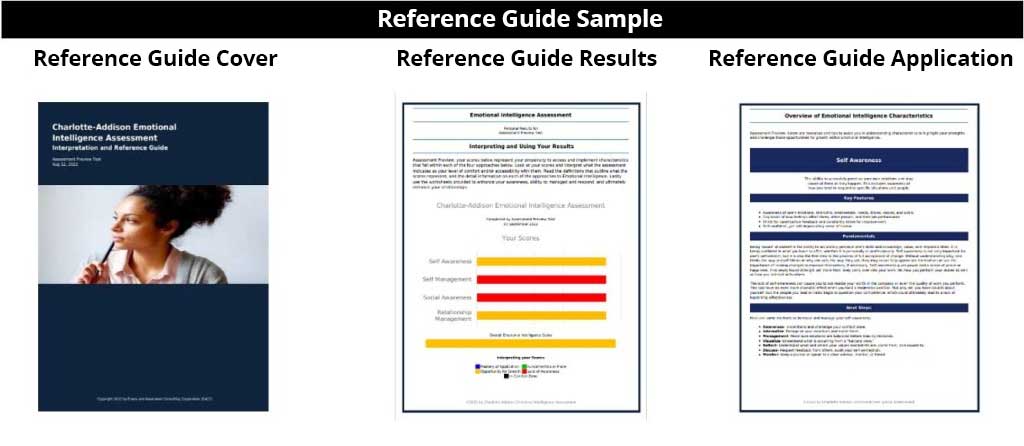Wasona Creative Leadership Indicator
$20.00
Emotional Intelligence is defined as a set of competencies demonstrating the ability one must have to recognize their behaviors, moods, and impulses, while managing them best according to the situation. Emotional Intelligence is a part of you that affects every aspect of your life. Understanding the root causes of your emotions and how to use them can help you to effectively identify who you are, what and why you do what you do, and how you interact with others.
Emotional Intelligence consists of four components: Self-Awareness, Self-Management, Social Awareness and Relationship Management, as based on works of theorist Daniel Goleman.
Self-Awareness is an individual’s ability to accurately recognize their own emotions and stay aware of them as they occur. This includes awareness of how they tend to respond to specific situations and with specific people.
Self-Management is an individual’s ability to use their emotional awareness to stay flexible, while productively directing their behavior in situations and with people.
Social Awareness is an individual’s ability to accurately recognize other emotions and have mechanisms to understand what others more precisely are really thinking and feeling.
Relationship Management is an individual’s ability to utilize self and social awareness, coupled with the ability to self-manage and enhance aspects of relationships based on communication, even in difficult conversations.
This course includes an assessment and a reference guide with explanations to assist you in processing and understanding the results of your assessment. By taking this assessment you have started your journey to understanding yourself and others better and having additional alternatives in how you respond in various situations.
As with all assessments, our intent is to use them for learning and creating awareness. There is no right or wrong answer, and you realize you will have varying levels of proficiency and/or awareness based on the situation with each of them. The goal of the assessment is to broaden your awareness of the components you have comfort in and enhance the components that offer you varying opportunities for growth.
Learning Objectives
This assessment models the emotional intelligence perspectives of Daniel Goleman, who originally developed his work from theorists Peter Salovey and John Mayer. We encourage you to research all these theorists for more information on the specifics of the topic of emotional intelligence.
This assessment will broaden your understanding and awareness of yourself in others increasing your
- ability to accurately recognize their own emotions and stay aware of them as they occur. This includes awareness of how they tend to respond to specific situations and with specific people- Self-Awareness.
- ability to use their emotional awareness to stay flexible, while productively directing their behavior in situations and with people- Self-Management.
- ability to accurately recognize other emotions and have mechanisms to understand what others more precisely are really thinking and feeling- Social Awareness.
- ability to utilize self and social awareness, coupled with the ability to self-manage and enhance aspects of relationships based on communication, even in difficult conversations- Relationship Management.
Process, Results, and Reference Guide
In a moment you with take the Charlotte Addison Emotional Intelligence Assessment to identify your level of resourcefulness in each of the four quadrants of emotional intelligence. Once you complete the payment process an email will be sent to you with a link to the assessment directly. Make sure to save this email, as it is your record proof of purchase. Next, you will follow the link supplied and complete the assessment. Once you have completed the assessment and submitted it, you will receive a personalized reference guide via email with a personalized summary report outlining your preferred Emotional Intelligence characteristics, with a resource guide interpreting the results. You will be introduced to possible “next step(s)” for strategizing and developing a plan to maintain your strengths and address your opportunities for growth. We hope you find value in the results.



